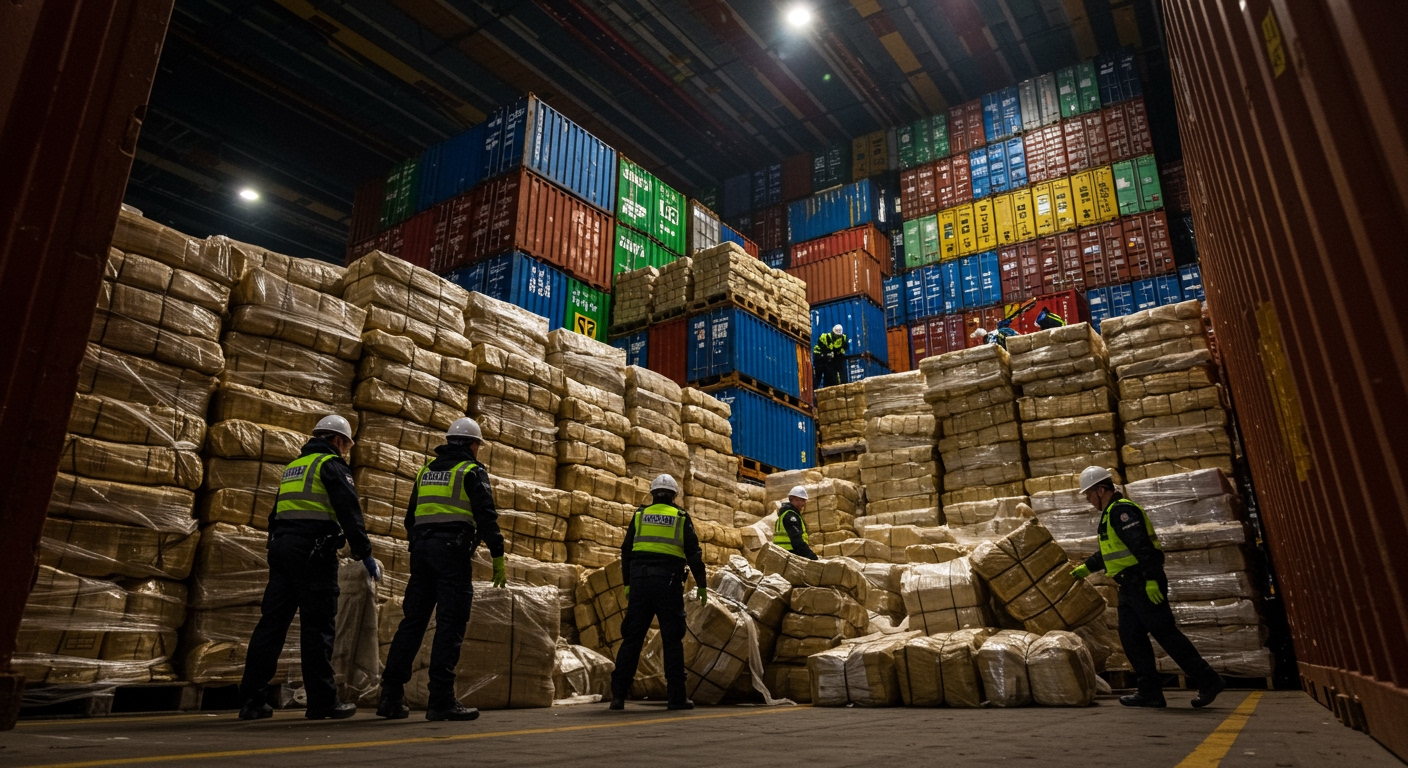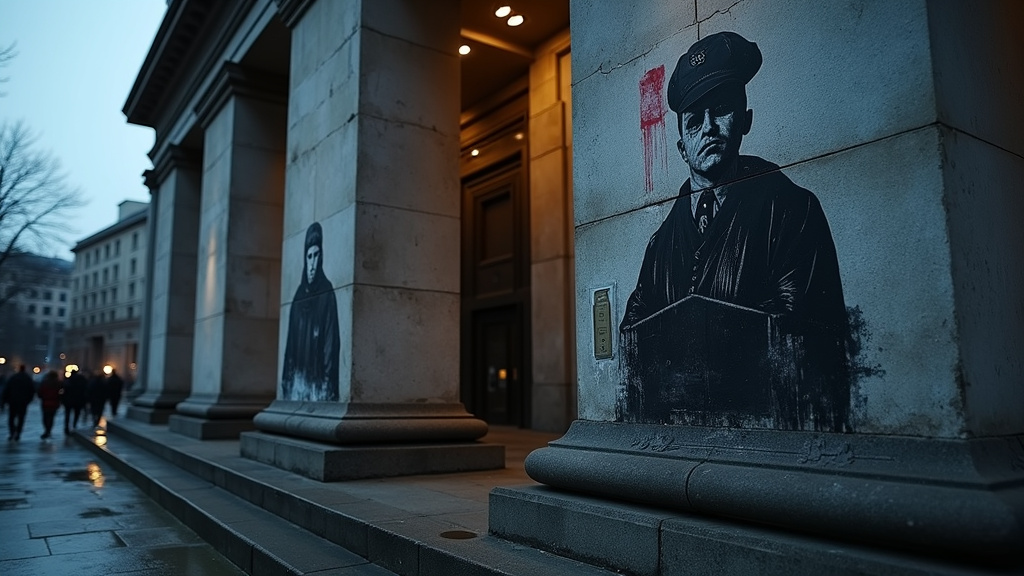LONDON – British authorities have successfully intercepted and seized approximately 2.4 metric tons of cocaine with an estimated street value exceeding 96 million pounds, equivalent to more than $132 million USD, from a vessel arriving at London Gateway port, located east of the British capital. The substantial illicit cargo, originating from Panama, was discovered following a meticulous intelligence-led operation.
Unearthing a Major Shipment
The discovery was made deep within the cargo hold of the ship. Acting on specific intelligence, UK Border Force officials and partners conducted a thorough search. The vast quantity of drugs was found cleverly concealed under containers, a common method used by criminal organisations to smuggle narcotics across international borders while attempting to evade detection. The scale of the concealment underscores the sophistication often employed in high-value drug trafficking operations.
This seizure represents a significant victory for UK law enforcement agencies in their ongoing battle against organised crime. Britain’s interior ministry, the Home Office, confirmed the magnitude of the find, stating that it ranks as the sixth-largest cocaine seizure on record by UK authorities. This places the operation among the most impactful drug busts in the nation’s history, preventing a massive quantity of illicit substances from reaching the streets.
Official Response and Strategic Importance
Charlie Eastaugh, Director of Maritime for the UK Border Force, highlighted the significance of this operation. He stated that the seizure serves as a powerful example of how intelligence-led operations enable authorities to effectively disrupt criminal gangs and their illicit activities. “This massive detection and seizure demonstrates the effective collaboration between the UK Border Force, the National Crime Agency, and international partners,” Eastaugh commented. “By working together, we are able to disrupt these criminal networks at source and prevent harmful drugs from reaching our streets and funding further criminal activity.”
The National Crime Agency (NCA) plays a crucial role in targeting serious and organised crime in the UK, including the trafficking of illicit drugs. The agency identifies Britain as one of Europe’s largest markets for cocaine, a factor that drives persistent attempts by criminal networks to import large quantities of the drug. This seizure at a major port like London Gateway, a key international trade hub, underscores the constant pressure faced by border security agencies.
The Cost of Cocaine: A Public Health Crisis
The human cost associated with the drug trade is stark and continues to rise. The NCA notes a concerning trend in the impact of cocaine within the country. Between the years 2022 and 2023, England and Wales saw a 31% rise in cocaine-related deaths. This statistic highlights the severe public health consequences linked directly to the availability and use of the drug, making efforts to disrupt supply chains all the more critical.
The immense value of the seized cocaine – over $130 million – represents the vast profits that criminal enterprises stand to gain from this harmful trade. Removing such a large shipment not only disrupts the immediate supply but also deals a significant financial blow to the syndicates involved, potentially hindering their ability to fund other criminal activities.
Broader Implications and Ongoing Fight
The intelligence-led nature of the operation suggests ongoing surveillance and monitoring of international trafficking routes. Ports like London Gateway are vital arteries for global trade, but their complexity also makes them attractive targets for smugglers. Authorities must constantly adapt their strategies and employ sophisticated techniques to identify and intercept illicit goods hidden within legitimate cargo.
The successful interdiction of this Panamanian shipment demonstrates the international dimension of the drug trade and the necessity of cooperation between source, transit, and destination countries. While a seizure of this magnitude is a major success, authorities acknowledge that the fight against drug trafficking is continuous and challenging.
Efforts by the UK Border Force and the NCA extend beyond port seizures to include investigations targeting the criminal networks themselves, aiming to dismantle their operations from production to distribution. This layered approach, combining interdiction with investigation, is essential in addressing the complex problem of serious organised crime fuelled by the drug trade.
This record-setting seizure sends a clear message to international criminal organisations that UK ports are heavily monitored and that authorities are increasingly effective at detecting large-scale drug smuggling operations. The collaboration between agencies and the strategic use of intelligence remain paramount in safeguarding the nation’s borders and communities from the scourge of illicit drugs.





